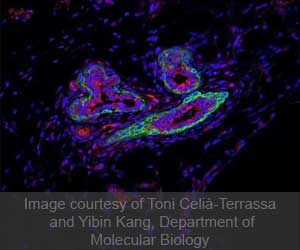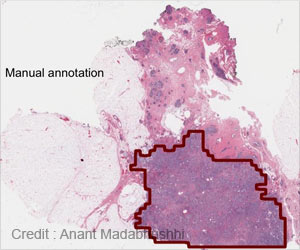Researches have shown that women who develop beast cancer at a young age have certain pieces of their DNA missing.

‘Treatment for breast cancer depends on the stage of cancer. It may consist of chemotherapy, radiation, hormone therapy and surgery.’





The discovery could hold the key to helping young women beat the disease, according to the researchers who studied the DNA of hundreds of Australian women aged under 40 who had developed breast cancer. "We were trying to find genetic causes for why these women developed the disease at such an early age," said Logan Walker from University of Otago, Christchurch, New Zealand.
The women "missed" certain bits of their DNA, showed the findings published in the journal Breast Cancer Research.
"We think these pieces of DNA that are missing may have overlapped genes or involved genes that have contributed to the early onset of breast cancer," Walker said, adding that he hopes the finding could one day identify women at risk of developing cancer at a young age, and improve treatment and survival rates.
"If we can identify the genes that underlie risk, or the sorts of things that cause disease in these young women, then we can potentially identify those women before the disease has occurred, and if we can do that we can minimise the risk of or prevent the disease from occurring in the first place," Walker said.
Advertisement
"Genetic testing typically shows that 10 per cent of young women who develop breast cancer have inherited a mutation in known breast cancer susceptibility genes - the most widely publicised being BRCA1 and BRCA2," Walker pointed out.
Advertisement
To confirm the findings of his study, the DNA of tens of thousands of women from around the world should be checked, Walker said.
Source-IANS















